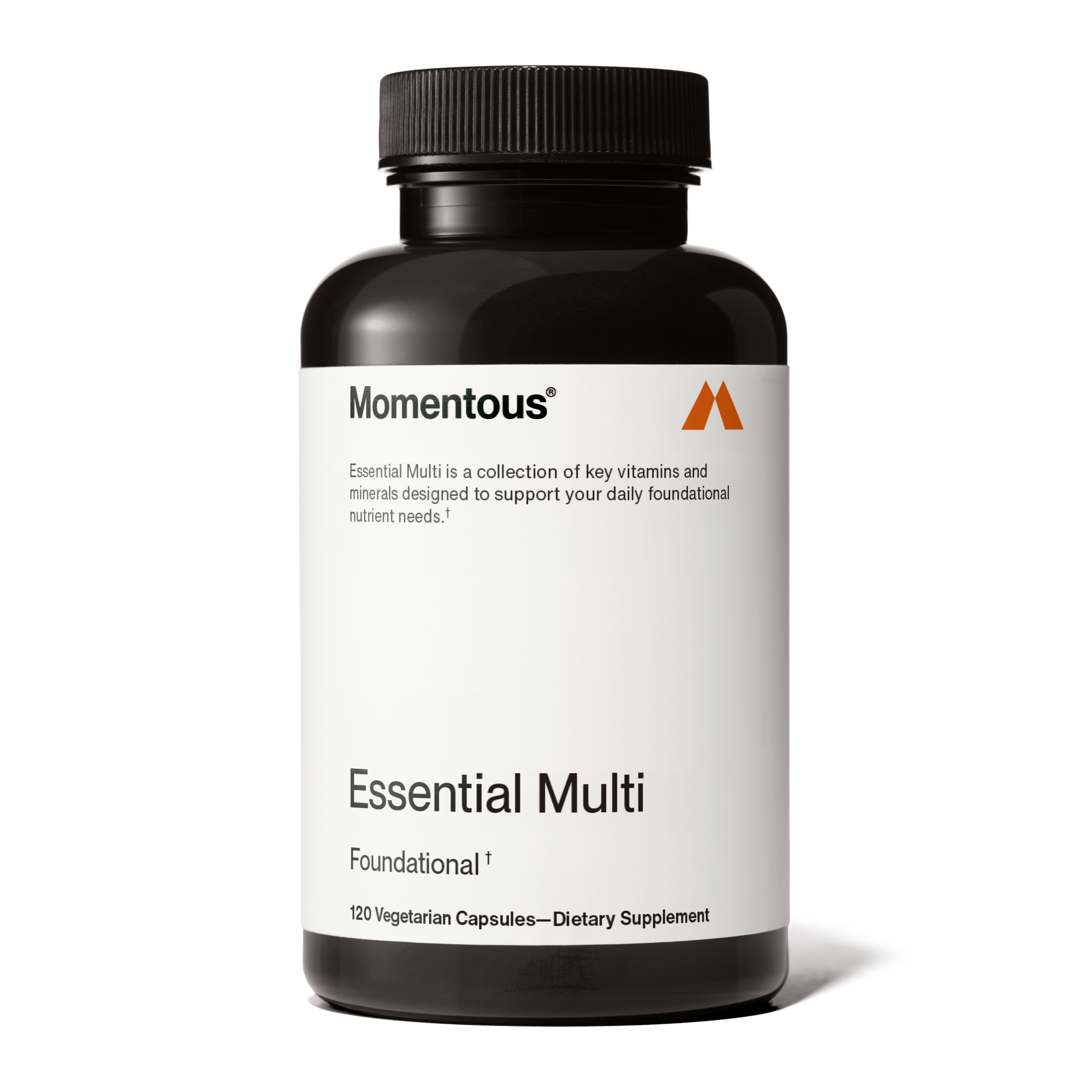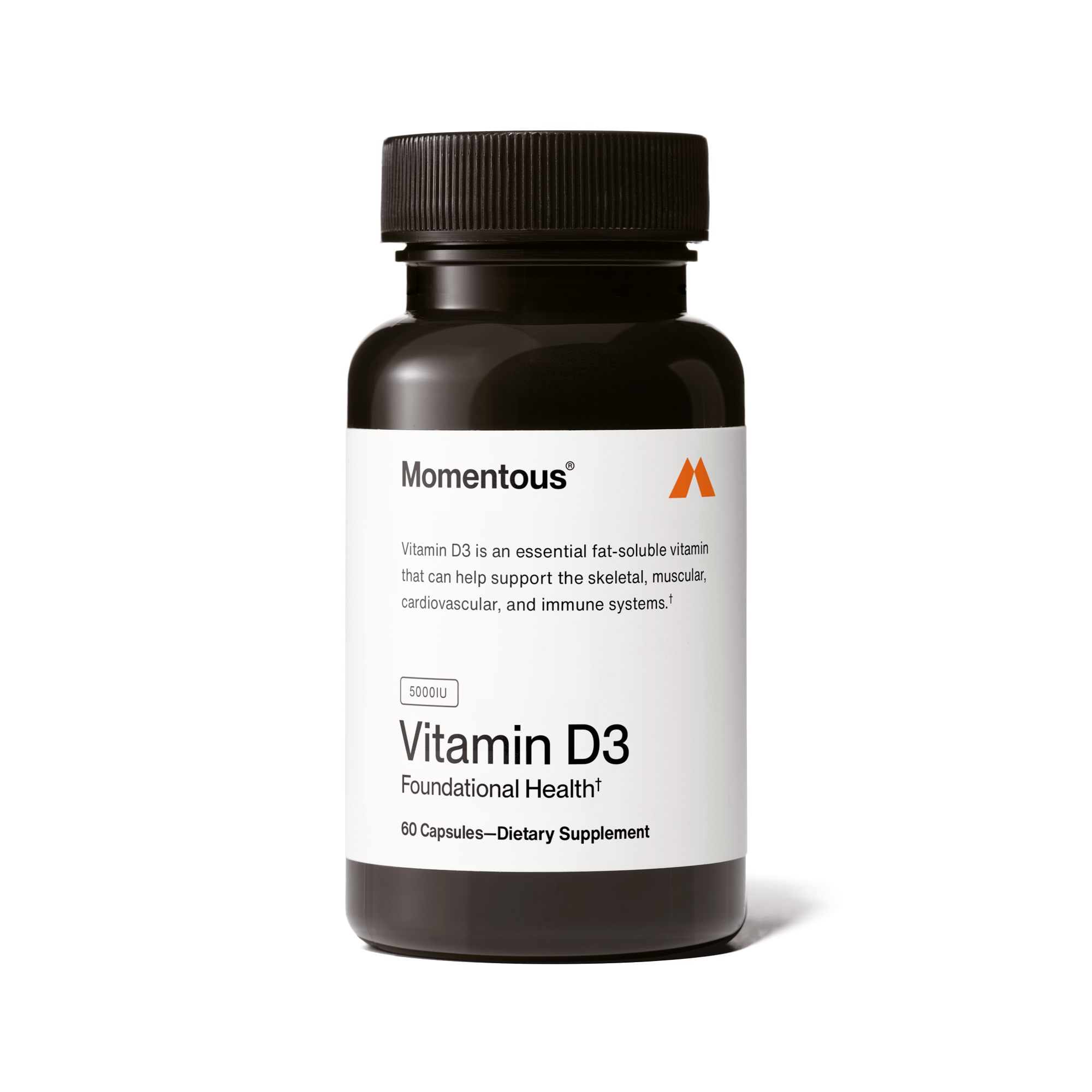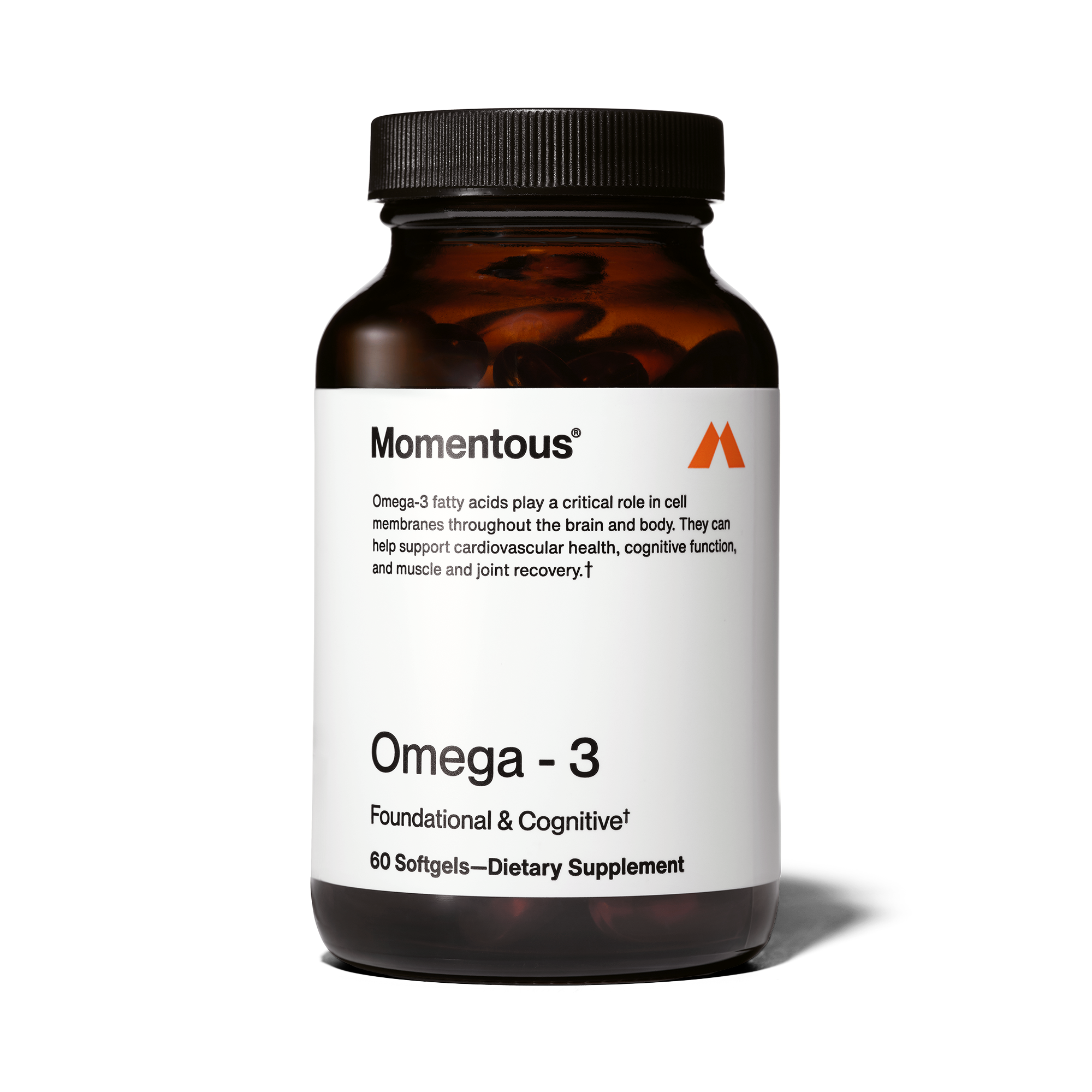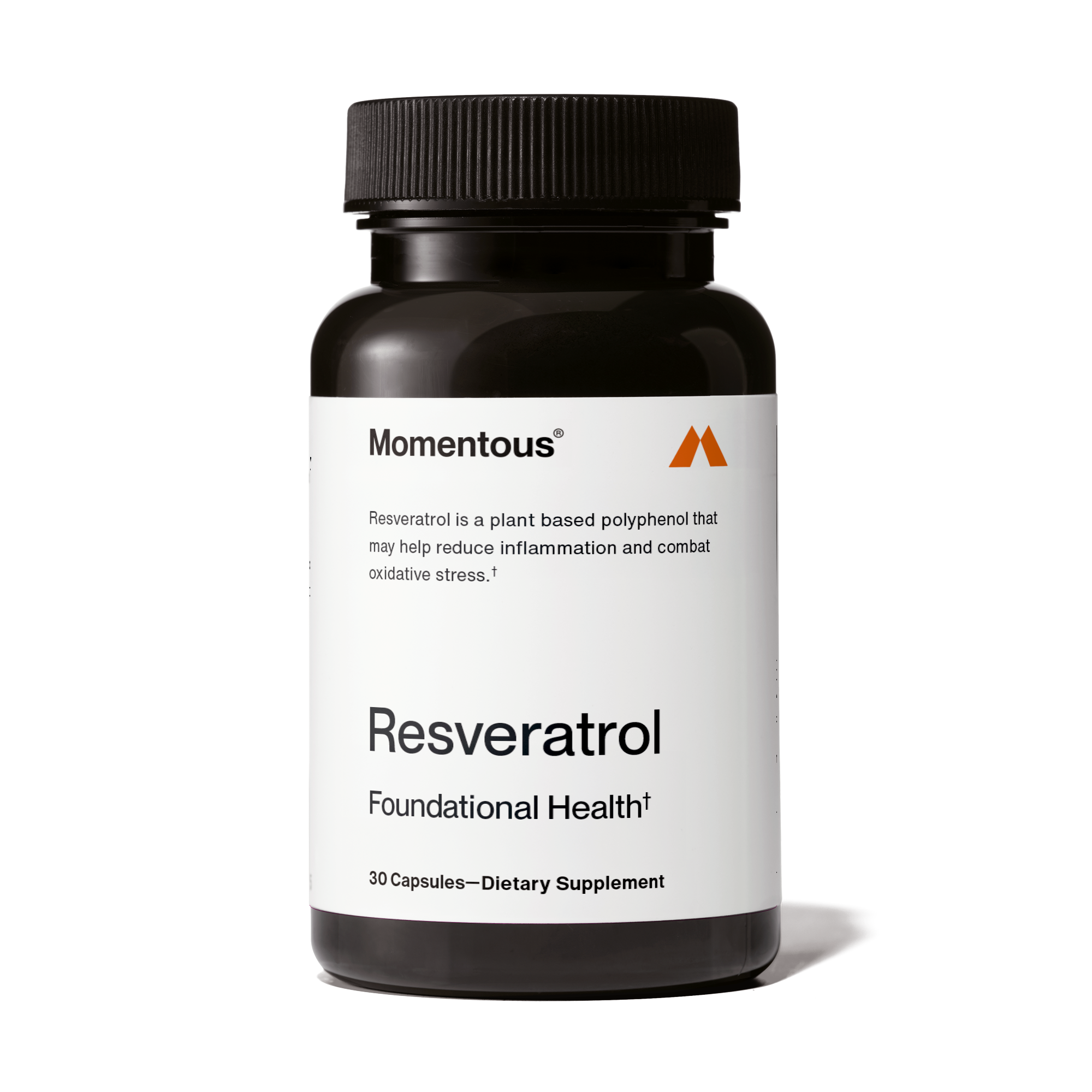Whole-food–based formula to fill nutrient gaps for daily health
High-strength D3 for bone + immune health
Potent, clean Omega-3 for cardiovascular + brain health
Antioxidant compound to support cellular health + aging
It goes without saying that we'd all like to live as long as possible. But it's easy to forget that the quality of those extra years matters just as much as the quantity. That's why we're diving into the difference between two terms, lifespan and healthspan - what they have in common and why it's crucial to know the difference. Understanding these terms will help you maximize your long-term health, no matter where you're at in life. Let's jump in.
What are Lifespan and Healthspan?
While they may sound similar, lifespan and healthspan refer to totally different aspects of our well-being.
Lifespan is simply the length of time we're alive, from the day we're born to the day we die. It's used as a metric to measure everything from medical advancements to public health interventions. But here's the thing: just knowing how long someone lives doesn't tell us anything about the quality of those years.
That's where healthspan comes in. Healthspan is all about the period of our lives when we're feeling our best, free from chronic illnesses and disabilities of aging. It's the time in our lives when we're full of energy, feeling great, and able to make the most of everything life has to offer.
The importance of healthspan is becoming increasingly recognized by researchers and specialists alike. Momentous partner Dr. Andrew Huberman has been stating the importance of understanding healthspan for a while now on his podcast, The Huberman Lab. Historically, research and medical treatments focused mainly on increasing our lifespan. But, a long lifespan is not always synonymous with good health. It's possible to live a long life but still face ongoing health challenges due to a chronic illness. That's why healthspan is a more meaningful and important goal. It's about living healthier, better, and in turn, longer. While lifespan is objective, healthspan can be subjective, making it a more personalized measure of well-being.
Optimizing Lifespan + Healthspan = Longevity
When added together, these two terms are a measurement of our overall longevity. It's all about maintaining good physical and mental health and reducing the risk of chronic diseases to increase your time being independent, active, and doing the things you love.
In the search for longevity, some people focus on quick-win solutions, like the latest fad diet, before addressing the foundational behaviors that have the most significant impact on longevity. To help you on your journey towards a longer and healthier life, here are some strategies, backed by scientific evidence and our Momentous Partners, that promote longevity and healthy aging.
Getting Regular Exercise
Regular physical activity is crucial for promoting longevity, as it can increase life expectancy by almost seven years (1). Both strength training and cardiovascular exercise improve healthspan. According to Momentous partner Dr. Stacy Sims, muscle loss starts around age 40. Without intervention, you could lose up to 50% of your muscle mass by age 80. Sarcopenia, age-related muscle mass loss, can diminish functional strength and your ability to keep up with activities of daily living. Strength training is essential for preserving muscle mass, bone density, and promoting independence, and it can lead to a 40-70% reduced risk of heart attack, stroke, or heart disease-related death. Maintaining bone density as you age is vital since many people face increased mortality after hip fractures. Chronic loss of muscle mass and bone density can be reduced by regular strength training, making it an essential tool for anyone looking to improve their lifespan and healthspan.
Cardiovascular exercise is another important tool for longevity, particularly Zone 2 cardio. Dr. Huberman recommends getting 180 to 200 minutes of Zone 2 cardio per week. Think of Zone 2 as going for a jog while you can still hold a conversation – somewhere between 60-70% of your maximum heart rate. This greatly benefits cardiovascular health, metabolic efficiency, muscle development, and the capacity to sustain physical activity over extended periods.
Getting Enough Sleep
We've explored this a lot recently, but sleep is critical for many aspects of health, including mental and physical function, immune system function, and metabolism (2). Dr. Huberman states sleep is the best nootropic, stress relief, trauma release, immune booster, hormone augmentation, and emotional stabilizer. Getting enough sleep, typically around 7 to 9 hours per night, establishing a regular sleep routine that allows you to wind down before bed, and sticking to a consistent sleep schedule will help to optimize your sleep quality.
Maintaining a Healthy Diet
A healthy diet is another pillar in the foundation of longevity. A diet rich in whole foods, such as fruits, vegetables, whole grains, and lean proteins, has been associated with a lower risk of chronic diseases and improved longevity (3). Aim for adequate protein along with dark leafy greens, berries, nuts, and seeds to promote a healthy diet.
Managing Your Stress
Chronic stress has been linked to a number of health problems, including heart disease, depression, and immune dysfunction (4). Finding effective ways to manage stress, such as through mindfulness practices, exercise, or therapy, can help to promote healthy aging. Take time to relax and unwind, and prioritize self-care activities that help you feel calm and centered.
Staying Socially Engaged
Social connection is essential in promoting healthy aging. It can help reduce stress, improve cognitive function, and boost overall well-being (5). According to Dr. Huberman, social connection is incredibly powerful in mitigating long-term stress and improving various aspects of life-related stress and emotionality. Conversely, social isolation for too long can lead to an increase in the neurotransmitter tachykinin, making us more fearful and paranoid and impairing our immune system. Chronic isolation and chronically high tachykinins associated with long-term stress may lead to irritability, paranoia, and fear. Therefore, it's important to prioritize social connection, spend time with people we care about and trust, and do things we enjoy to reduce chronic stress and improve our overall health and well-being.
Making an effort to adopt healthy behaviors that increase your healthspan can make a huge difference in how you experience life as you get older. Even though these behaviors may seem simple, they are foundational for leading a healthier and happier life and for your longevity.
----
(1) Reimers, C. D., Knapp, G., & Reimers, A. K. (2012). Does physical activity increase life expectancy? A review of the literature. Journal of Aging Research, 2012, 243958.
(2) Alvarez, G. G., & Ayas, N. T. (2004). The impact of daily sleep duration on health: a review of the literature. Progress in Cardiovascular Nursing, 19(2), 56–59.
(3) Caprara, G. (2018). Diet and longevity: The effects of traditional eating habits on human lifespan extension. Mediterranean Journal of Nutrition and Metabolism, 11(3), 261–294.
(4) Lepore, S. J., Miles, H. J., & Levy, J. S. (1997). Relation of chronic and episodic stressors to psychological distress, reactivity, and health. International Journal of Behavioral Medicine, 4(1), 39–59.
(5) Thomas, P. A. (2012). Trajectories of social engagement and mortality in late life. Journal of Aging and Health, 24(4), 547–568.



















